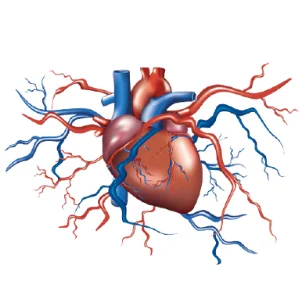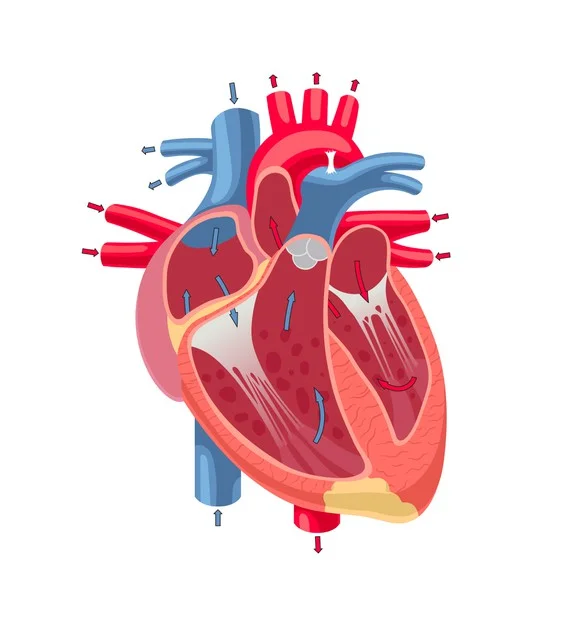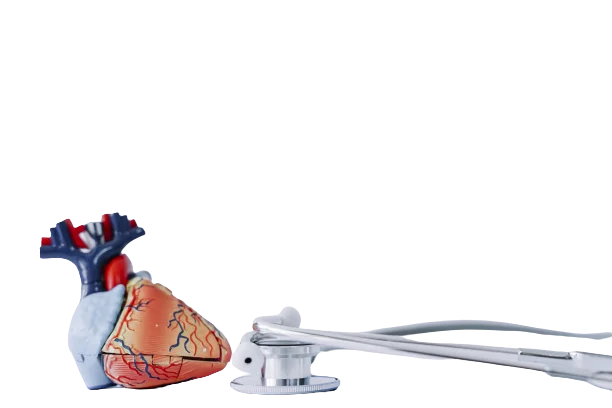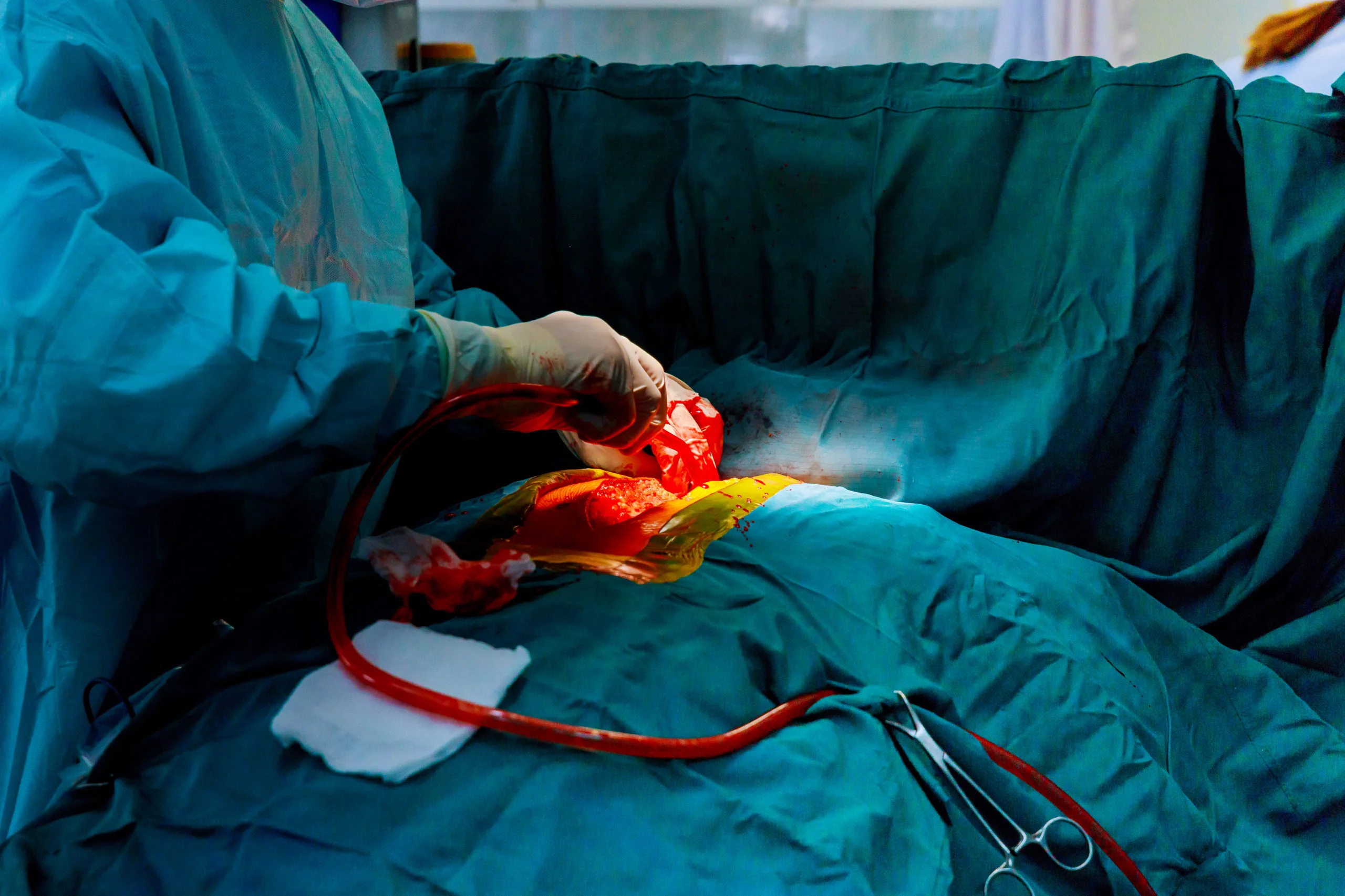Book Your Appointment
Heart valve surgery
Get Solution At Swasthyam Superspeciality Hospital
Heart valve surgery
Heart valve surgery is a procedure to treat heart valve disease. Heart valve disease involves at least one of the four heart valves not working properly. Heart valves keep blood flowing in the correct direction through your heart.
The four valves are the mitral valve, tricuspid valve, pulmonary valve and aortic valve. Each valve has flaps — called leaflets for the mitral and tricuspid valves and cusps for the aortic and pulmonary valves. These flaps open and close once during each heartbeat. Valves that don’t open or close properly disrupt blood flow through your heart to your body.
In heart valve surgery, your surgeon repairs or replaces the affected heart valves. Many surgical approaches can be used to repair or replace heart valves, including open-heart surgery or minimally invasive heart surgery.
Your treatment depends on several factors, including your age, your health, the condition of the affected heart valve and the severity of your condition.

Why it’s done?
There are two basic types of heart valve defects: a narrowing of a valve (stenosis) and a leak in a valve that allows blood to back up (regurgitation). You might need heart valve surgery if you have one of these defects and it’s affecting your heart’s ability to pump blood.
Your doctor will evaluate you to determine the most appropriate treatment for your condition. If you don’t have signs or symptoms, or your condition is mild, your doctor might suggest monitoring over time. In that case, healthy lifestyle changes and medications might help manage symptoms.
Eventually, your valve might need to be repaired or replaced. In some cases, doctors recommend heart valve repair or replacement even if you’re not having symptoms. If you need heart surgery for another condition, doctors might repair or replace the affected heart valve at the same time.
Your doctor will discuss with you whether heart valve repair or replacement is more appropriate for your condition. Doctors often recommend heart valve repair when possible, as it preserves your heart valve and might preserve heart function. But sometimes valve replacement is necessary and the best option.
Doctors might also evaluate if you’re a candidate for minimally invasive heart surgery. Your doctor will discuss the benefits and risks of each procedure.
Risks
Possible heart valve surgery risks include:
- Bleeding
- Heart attack
- Infection
- Valve dysfunction affecting replaced valves
- Irregular heart rhythm (arrhythmia)
- Stroke
- Death

Risks

Possible heart valve surgery risks include:
- Bleeding
- Heart attack
- Infection
- Valve dysfunction affecting replaced valves
- Irregular heart rhythm (arrhythmia)
- Stroke
- Death
Results
After heart valve surgery, you might be able to return to daily activities, such as working, driving and exercise. Your doctor will discuss with you when you can return to activities. You’ll generally need to take certain medications.
You’ll need to attend regular follow-up appointments with your doctor. You might have several tests to evaluate and monitor your condition.
Your doctor might instruct you on making healthy lifestyle changes — including physical activity, a healthy diet, stress management and avoiding tobacco use — to keep your heart working well.
Your doctor might recommend that you participate in cardiac rehabilitation — a program of education and exercise designed to help you recover after heart surgery and improve your overall and cardiovascular health.
- Stop smoking.
- Follow a healthy-eating plan, such as the DASH diet.
- Achieve and maintain a healthy weight.
- Exercise regularly.
- Manage stress.
Prevention
The same healthy lifestyle changes recommended to treat atherosclerosis also help prevent it. These include:
- Quitting smoking
- Eating healthy foods
- Exercising regularly
- Maintaining a healthy weight
-
Just remember to make changes one step at a time, and keep in mind what lifestyle changes are manageable for you in the long run.


What does a cardiac surgeon do?
Cardiovascular surgeons operate on your heart and blood vessels to repair damage caused by diseases or disorders of the cardiovascular system. Texas Heart Institute cardiovascular surgeons are listed in the professional staff directory.
Many times, a diagnosis of heart disease begins with your primary care doctor, who refers you to a cardiologist. If your cardiologist decides that you need surgery, he or she refers you to a cardiovascular surgeon, who becomes a new member of your heart-health team. (Even after heart surgery, you remain under the care of your cardiologist.)
Cardiovascular surgeons perform many different types of operations, including heart valve repair and replacement, heart defect repair, coronary artery bypass, aneurysm repair, transmyocardial laser revascularization, and heart transplantation. They also perform operations on the blood vessels in your body, including the aorta—the body’s main blood supplier.
Message Us
Get In touch with us. Ask Any Question or Book Your Appointment Now
Emergency
+91-8600888444
Book An Appointment
0712-2222111
Contact Us
Location
97/98 Vivekanand Nagar, Near Sai Mandir, Wardha Road, Nagpur
Contact for
Emergency :- +91-8600888444
Book An Appointment:- 0712-2222111
